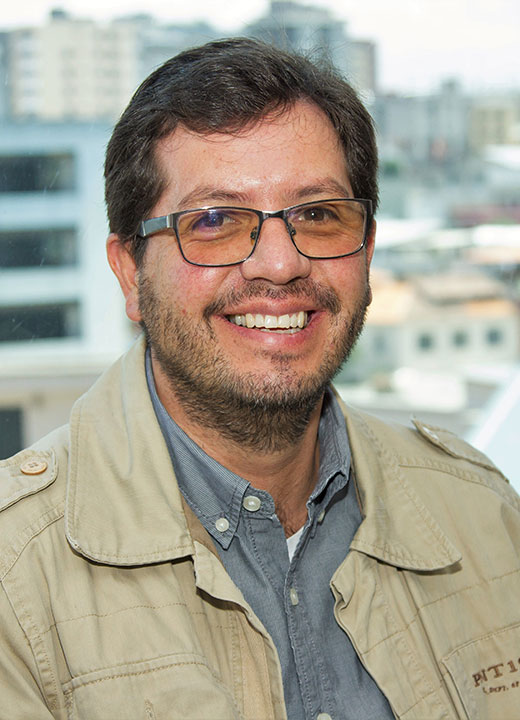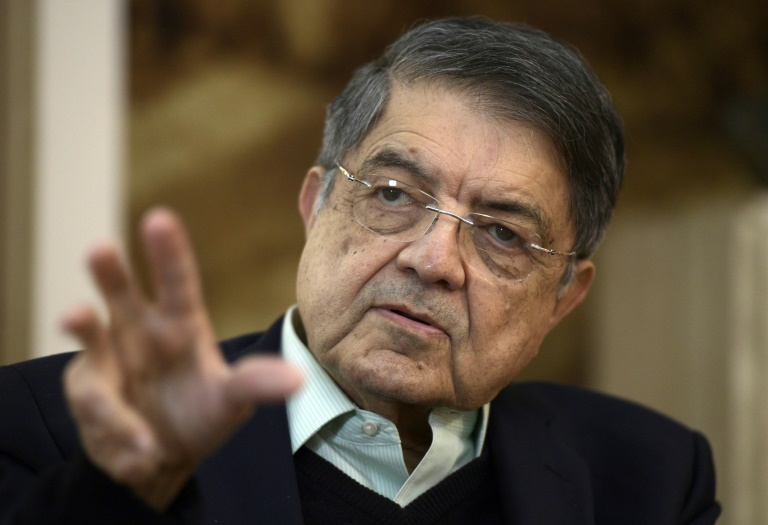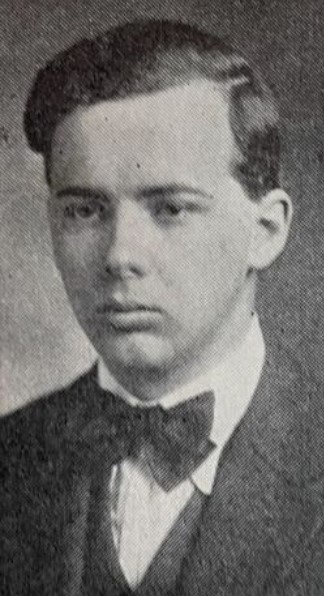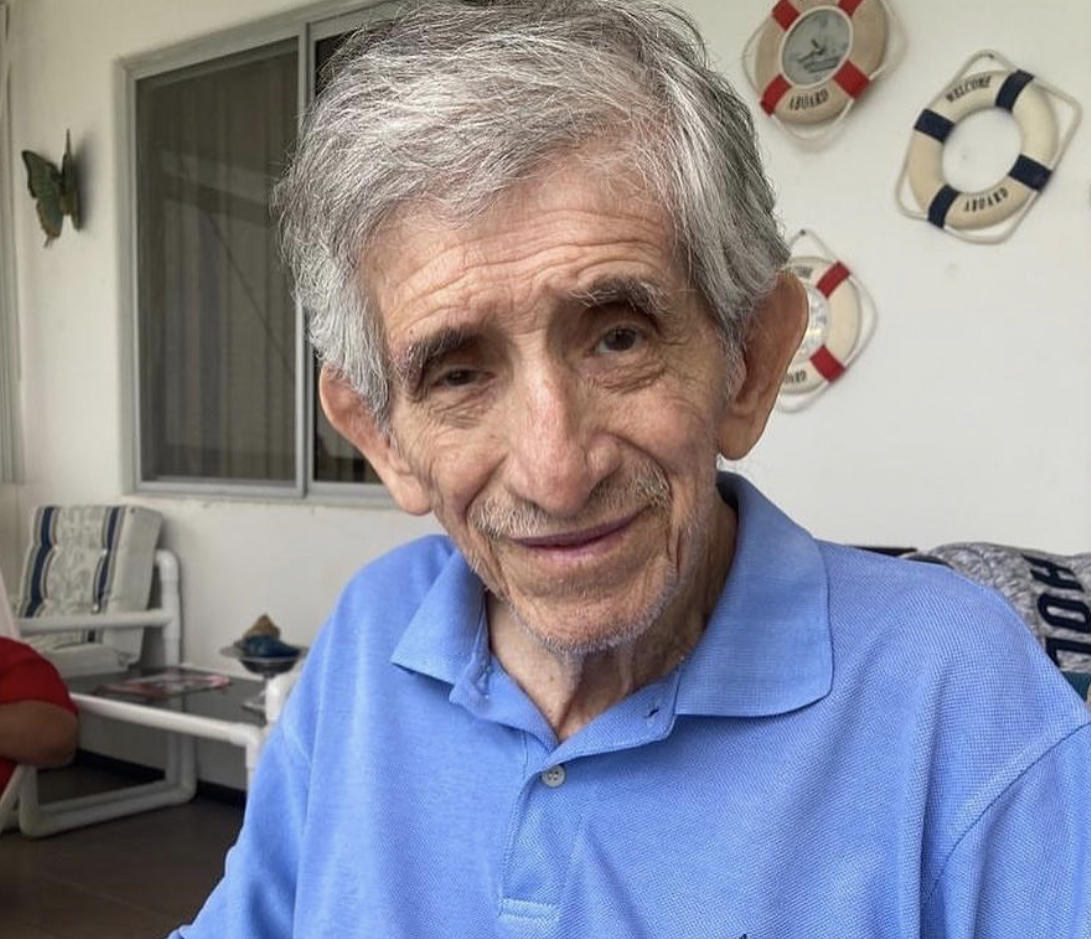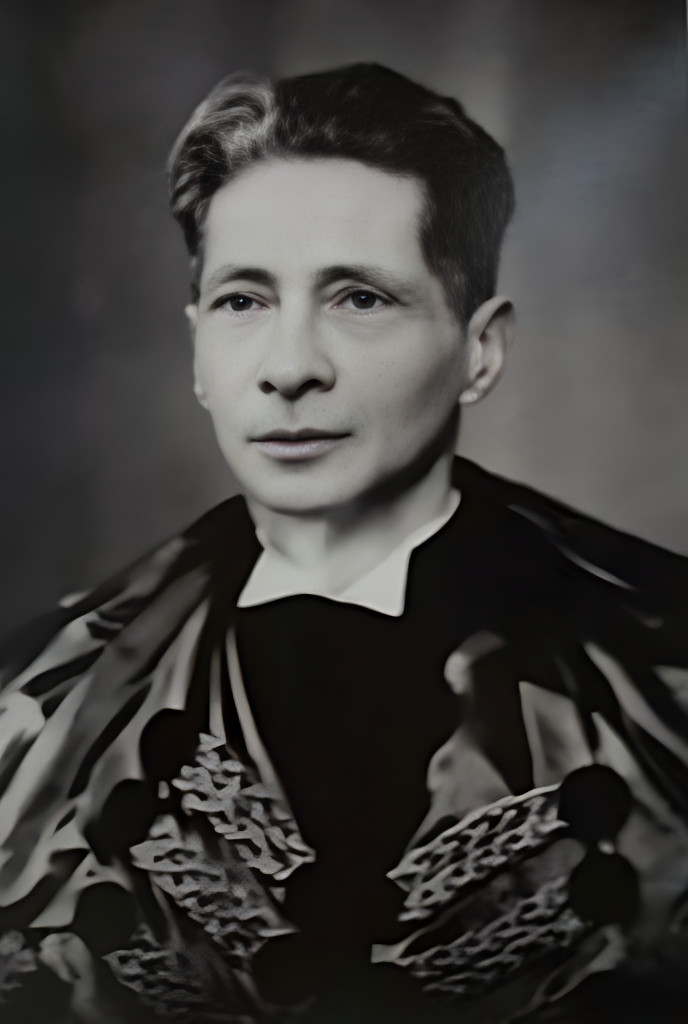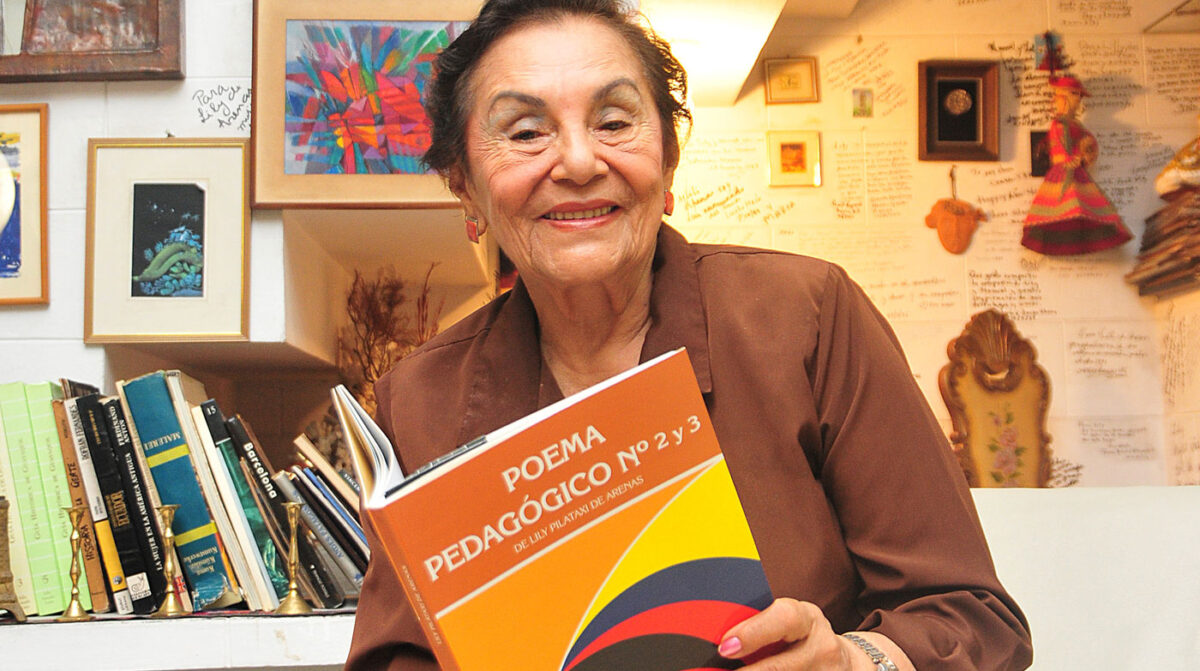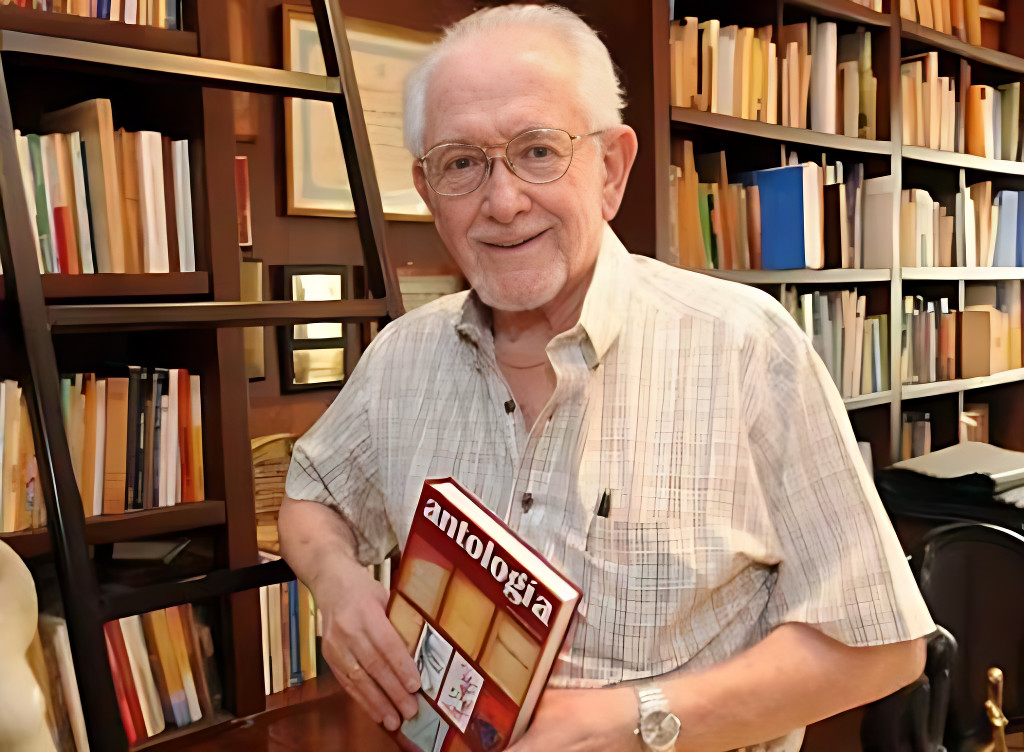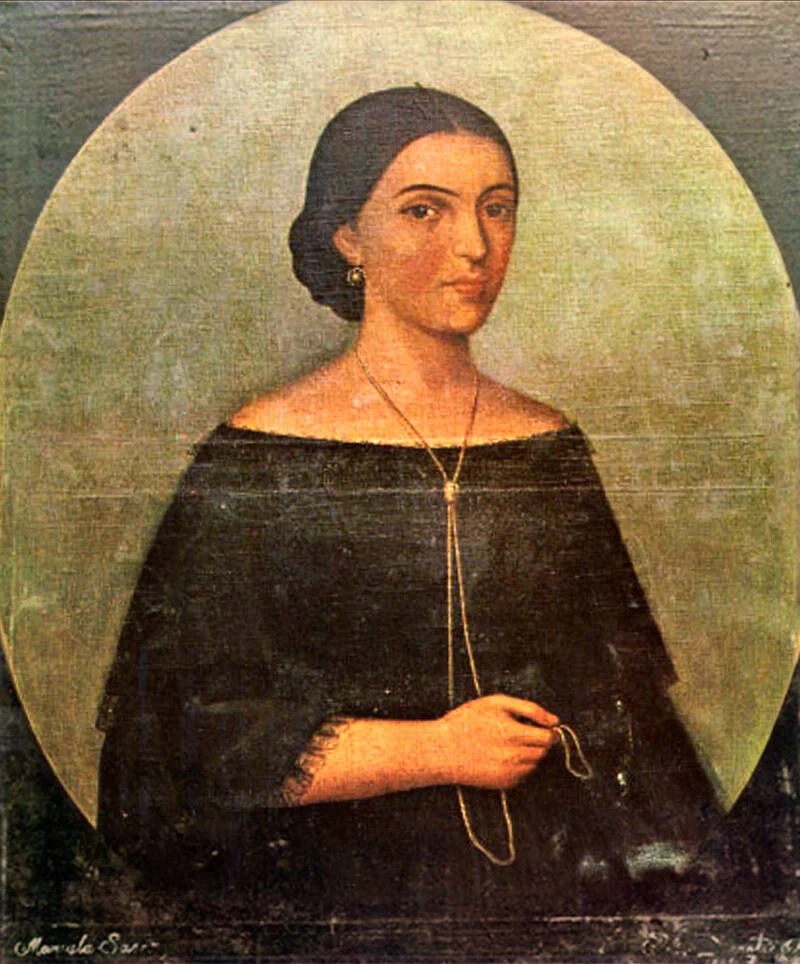Pablo Escandón Montenegro (May 30, 1974) is an Ecuadorian fiction writer and social communicator with a PhD in Communication and Contemporary Information from the University of Santiago de Compostela, Spain. His research focuses on topics such as heritage, museums, memory recovery, and digital literature. He has served as a professor for both undergraduate and postgraduate programs at various universities in Ecuador, and is the director of Arsquitensis. Currently, he works as a full-time professor in the Communication area at Simón Bolívar Andean University in Ecuador.
Continue reading “Pablo Escandón Montenegro”Month: April 2023
Sergio Ramírez Mercado
Sergio Ramírez Mercado (August 5, 1942) is a prominent Nicaraguan author and a recipient of the prestigious Cervantes Prize. In February of 2023, he accepted an offer of Ecuadorian citizenship from President Guillermo Lasso after being exiled from Nicaragua in 2021 and subsequently stripped of his nationality in 2023, along with 93 other individuals, by the government of Daniel Ortega, who branded them as traitors. He was a key figure in 1979 revolution, served in the leftist Government Junta of National Reconstruction and as vice president of the country 1985–1990 under the presidency of Daniel Ortega. He is currently residing in Spain, where he also holds citizenship, and had previously been granted citizenship by Colombia before being offered citizenship by Ecuador. Ramírez is widely recognized as Nicaragua’s “best-known living writer,” having authored numerous novels, short story collections, and works of non-fiction. Some of his work has been translated into English.
Continue reading “Sergio Ramírez Mercado”Dudley Poore
Dudley Poore (September 6, 1893 – 1981) was an American poet, author, and translator. Among his most notable works is his English translation of Our Daily Bread (1943) by Ecuadorian author Enrique Gil Gilbert, which had received honorable mention in Farrar & Rinehart’s Latin-American Prize Novel Contest. Poore also translated The Bonfire (1944) by Brazilian writer Cecilio J. Carneiro, earning critical acclaim for his work. Beyond translation, he co-edited Fiesta in November: Stories from Latin America (1942) and North American Storytellers (1946), and his poetry was featured in Eight Harvard Poets (1917). The “Dudley Poore papers,” housed in the Beinecke Rare Book and Manuscript Library at Yale University, offer a comprehensive view of his life and work, including correspondence, writings, photographs, and notebooks.
Continue reading “Dudley Poore”Hymn of El Oro Province by Temístocles José Araúz Rojas
Translated to English by Richard Gabela on April 20, 2023, from the original work “Himno de El Oro” by Temístocles José Araúz Rojas (1871-Unknown) of Machala, Ecuador.
Continue reading “Hymn of El Oro Province by Temístocles José Araúz Rojas”Identity for Oblivion by Teodoro Vanegas Andrade
Translated to English by Richard Gabela on April 18, 2023, from the original work “La identidad para el olvido” by Teodoro Vanegas Andrade (1926-2002) of Cuenca, Ecuador. I have translated the title of the poem as “Identity for Oblivion.”
Continue reading “Identity for Oblivion by Teodoro Vanegas Andrade”Luis Delgadillo
Luis Delgadillo Avilés (Guayaquil, 1942 – September 13, 2022) was an Ecuadorian poet and journalist. He was part of a group of poets dubbed, “Generación Huracanada” [Hurricane Generation]. In 1971, he won the third national poetry prize. His poetry books include: “El rayo que ilumina” (1971), “Poemas de la marcha” (1977), and “Carta para un hijo y otros poemas” (1997). His non-fiction books include: “Leonardo Escobar Bravo, El ministro de los campesinos” (2006) and “La pepa de oro y el montubio” (2007), which focused on themes of the peasant class. He was a member of the literary section of the House of Ecuadorian Culture in Guayas.
Continue reading “Luis Delgadillo”De Plácido e Silva
Oscar Joseph de Plácido e Silva, known as De Plácido e Silva (Marechal Deodoro, Brazil, June 18, 1892 – Curitiba, Brazil, January 16, 1963) was a Brazilian jurist, writer, editor, translator, publisher, teacher, and businessman. In 1939, he founded and directed a publishing house, Editora Guaíra, headquartered in Curitiba, Brazil. In 1940, he created the publishing house’s Estante Americana collection which was the first to feature Hispanic American novels by neighboring countries. The famous Brazilian novelist and translator, Jorge Amado, was asked for title suggestions and acted as a sort of unofficial director of the collection. Due to its powerful social critique, Amado recommended the inclusion of “Huasipungo,” a 1934 novel by Ecuadorian author Jorge Icaza. De Plácido e Silva translated and edited “Huasipungo” into Portuguese and wrote the preface for the book, which was dated June 1941. It was the book’s first-ever Portuguese translation; since then, two additional Portuguese translations have been made. It is worth noting that the collection’s most successful works were “Doña Bárbara,” by Venezuelan author Rómulo Gallegos (translated by Jorge Amado in 1940) and “Huasipungo” by Ecuadorian author Jorge Icaza (translated by De Plácido e Silva in 1941). A school in Pinhais, Brazil, “Colégio Estadual Oscar Joseph D’Plácido e Silva,” established in the year 2000, was named in his honor.
Continue reading “De Plácido e Silva”Lily Pilataxi de Arenas
Lily Pilataxi de Arenas (Guayaquil, 1930) is an Ecuadorian author of children’s literature, poet, writer, journalist, diplomat and educator. As a feminist and advocate of women’s rights she authored “La Mujer y sus Derechos” [Women and their Rights] (1990). She has taught in Ecuador and Germany, and most recently served as rector of the Educational Unit Steiner (Unidad Educativa Steiner) in Guayaquil. Her teaching experiences in Germany (from 1963 to 1978) are chronicled in “Poema pedagógico No 2 y 3” [Pedagogical Poem Nos. 2 and 3]. Perhaps her most popular children’s story is “Doña cucaracha y la bolita de nieve” [Don︣a Cucaracha and the Snowball] (2010) which was translated into English, Geman and French. She has received numerous honors both inside and outside of Ecuador. She was awarded and designated an honorary member of The International Society of Poets, Writers, and Artists (SIPEA). As a journalist, she wrote an opinion column for El Universo newspaper for 30 years, and was also an opinion columnist for El Telégrafo. She has given lectures in the United States, Europe and Africa.
Continue reading “Lily Pilataxi de Arenas”Francisco Pérez Febres-Cordero
Francisco Pérez Febres-Cordero (Guayaquil, July 18, 1934 – Ibidem, August 31, 2010) was an Ecuadorian poet and journalist whose distinguished career at El Universo newspaper lasted four decades (1958-1998). Among his many accomplishments at El Universo was the creation of the Ismael Pérez Pazmiño Poetry Contest in 1959, which is regarded as one of the most prestigious poetry awards in Ecuador. He authored several poetry books, beginning with “Polvo de estrellas” [Star Dust] in 1951. His “Obras completas” [Complete Works] was published posthumously in 2020. From 1992 to 1998 he was Vice-director and Chairman of the Board of El Universo. In 1998, the year he retired from El Universo, he and one of his sons launched a bookstore named El Librero inside the Ríocentro Ceibos Mall, which, in 2008, they sold to the Librimundi group. In 2012, a bust of him was erected on “Avenida del Periodista” (Avenue of the Journalist) in Guayaquil.
Continue reading “Francisco Pérez Febres-Cordero”Manuela Sáenz
Manuela Sáenz Aizpuru de Thorne, commonly known as Manuelita Sáenz (Quito, Ecuador, during the Spanish Empire, December 27, 1797 – Paita, Peru, on November 23, 1856) was a noblewoman, political activist, and heroine in the fight for independence from Spain. Although she did not publish her writings during her lifetime, she did leave behind a significant amount of correspondence, including letters to Simon Bolívar, which provide valuable insight into her life and her role in the struggle for independence. Sáenz became involved in the revolutionary movement at an early age and was the lover and confidante of Simón Bolívar before and during the war for independence. She was instrumental in saving Bolívar’s life on at least one occasion, which led Bolívar to give her the title “Libertadora del libertador” [Liberator of the Liberator]. She accompanied him on many of his campaigns and was present at the Battle of Ayacucho, which marked the end of the Spanish presence in South America. After the war, Sáenz was granted the Order of the Sun or “Dame of the Sun” [Caballeresa del Sol] for her role in the struggle. However, her political activities and her unconventional personal life, which included several affairs, made her the target of criticism and condemnation by many in the conservative society of the time. She ultimately died in exile and poverty. Nevertheless, her legacy as a revolutionary and a feminist icon has endured, and she is remembered today as a symbol of the struggle for independence and women’s rights in South America. She has been the subject of many books in and outside of Ecuador.
Continue reading “Manuela Sáenz”
